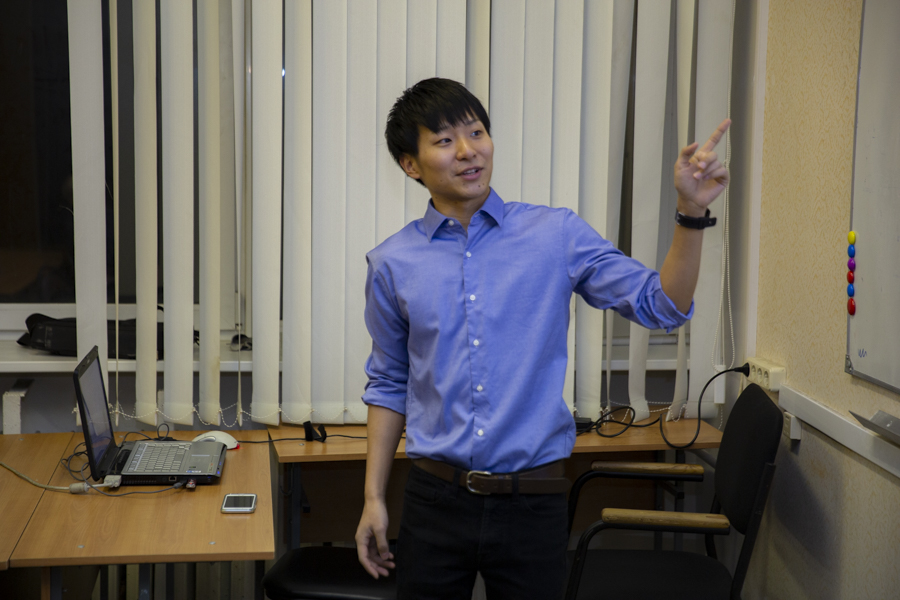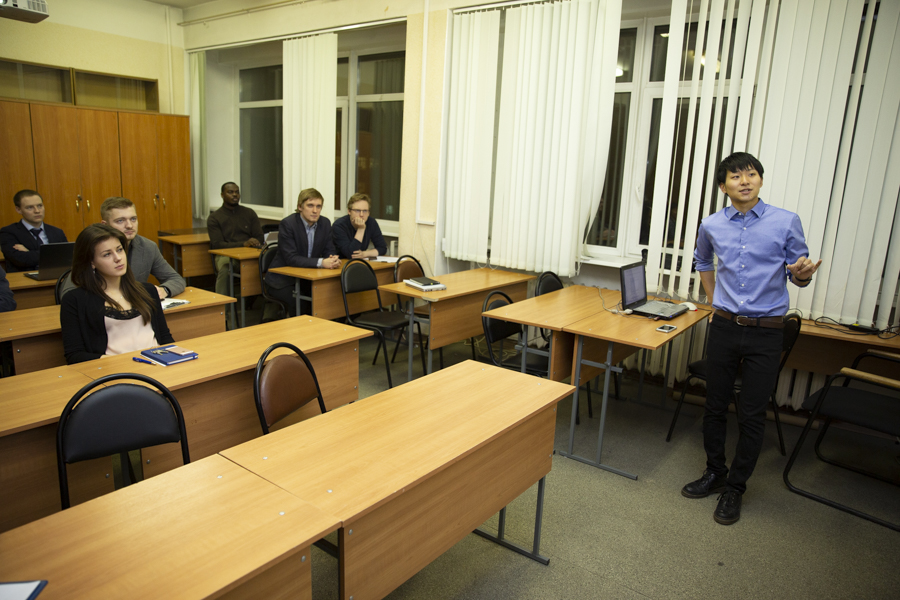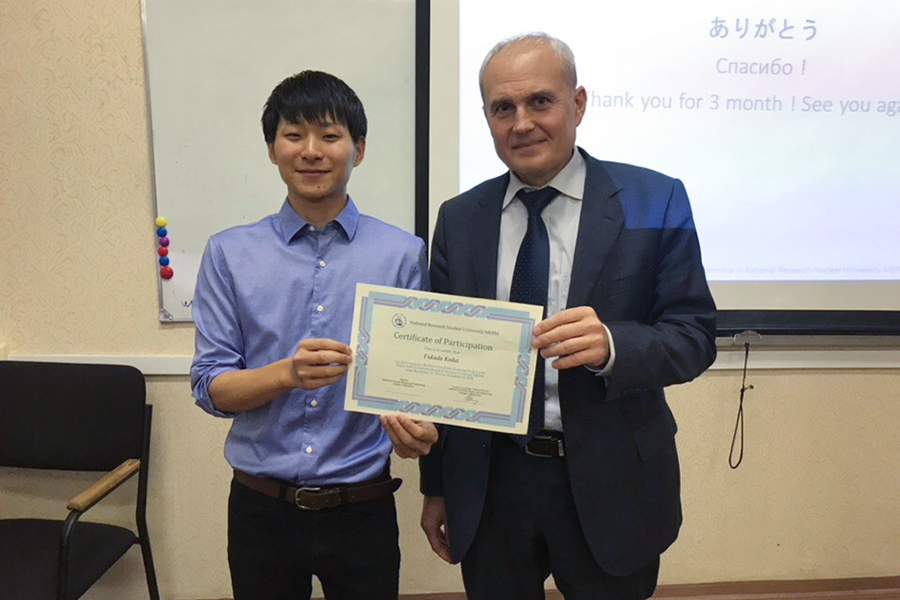A student of the Tokyo Institute of Technology, Japan, Kodai Fukuda has passed a three-month internship in the laboratory of computer simulation engineering in the field of nuclear technology MEPhI under the leadership of the Deputy Director of the Institute of Nuclear Physics and Engineering G.V. Tikhomirov..

For a long time Kodai wanted to try to study abroad, in addition, an important role was played by the number of credits that he had to dial at the time of graduation from the University. MEPhI could provide Kodai with the necessary practice and amount of credits, so he decided to take part in the exchange program.
According to the student, many people want to participate in exchange programs with universities in the US and Europe, and Russia is not the most popular destination. Kodai learned about MEPhI from his Professor, who convinced him that education at the University is at a very high level, and the laboratories are equipped with new equipment corresponding to the latest trends.

The training was conducted in English. Kodai noted that he did not have any difficulties in learning, as students and teachers speak English well, and he could always turn to them.
"Hello”, "Yes, "No," "How are you?", "Thank you", "Please", "Bye", "Goodbye" – these are the words and expressions that the Japanese learned during his stay in Russia, and the phrase "This, please" was learned specifically for MEPhI canteen.
Together with friends whom Kodai acquired at MEPhI, and students from Japan who study at other universities, he visited many museums, theatres, cultural heritage sites and other attractions in Moscow.
The student liked living in Russia, but he notes that if he stayed longer than three months, there could be difficulties, the most obvious – most people outside the University do not speak English. However, he stressed that he was always treated kindly, and if he had any questions, despite the language barrier, people tried to help. Among the advantages of life in Russia, Kodai notes cheap transport and food. He also says that housing in Moscow cost him "almost nothing", while in Japan student pays about 25 thousand per month for the room which is three times smaller in a University hostel.
"I would like to stay here for a longer period, if I could at least sometimes taste real Japanese food, I really miss my cuisine. I was in Japanese restaurants in Moscow, it's delicious, but it's not that,” shared the student. Kodai would agree to move to Russia if he was offered a job here, but he also notes that he would have to get used to the Russian culture, mentality and working process. "Here people say everything honestly," it was the most obvious difference in cultures he saw. "In Japan, people smooth over the differences, no one talks about mistakes directly and does not criticize. On the one hand, such honesty can offend a person, and on the other – it clearly helps to see your points of growth, and you know what else you need to work on," the student says.

There are also differences in the educational process, for example in MEPhI students in laboratories discuss the process in parallel with the execution of works, in Japanese laboratories there is silence. At first unusual for Japanese laboratories noise distracted Kodai, but after a while he stopped noticing it, and this, he believes, is a very important skill, because many companies require multitasking and the ability to work in different conditions from a job applicant.
Another observation of Kodai: in the MEPhI laboratories people of different ages communicate on an equal footing, there is no difference between junior and senior, students and employees, so if in the process of work there is a question, you can without any hesitation ask the teacher or discuss it with students. In Japan, even if you want to ask a senior, you have to do it in a special way, given his age. Kodai likes the model of communication with colleagues, which he saw in MEPhI, much more.





